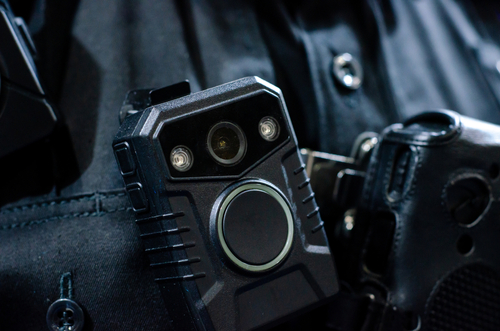U.S. Department of Homeland Security (DHS) Secretary Alejandro N. Mayorkas has announced the first department-wide policy on body-worn cameras (BWCs) for its law enforcement officers and agents. The department’s plan will include a phased implementation of BWCs while working with Congress to secure the necessary funding to equip agents nationwide with the recording devices.

The new policy was required by President Joe Biden’s Executive Order on Advancing Effective, Accountable Policing and Criminal Justice Practices to Enhance Public Trust and Public Safety.
Within 180 days, DHS agencies and offices will draft and issue, or update, their own individual BWC policies that meet or exceed the requirements set forth in the department-wide policy.
DHS encompasses nine operational law enforcement agencies with nearly 80,000 law enforcement officers and agents across the country. The department-wide policy builds on pilots, testing, and phased rollouts at component agencies over the last two years:
- U.S. Customs and Border Protection has already issued 7,000 BWCs to its workforce as part of an Incident-Driven Video Recording Systems program, with a phased deployment that began in August 2021 at Border Patrol locations across the southwest and northern borders, to be followed by select Office of Field Operations Special Response Teams.
- U.S. Immigration and Customs Enforcement conducted a pilot program, beginning with Homeland Security Investigations special agents who are members of the special response teams in Houston and El Paso, Texas; New York City; and Newark, N.J., followed by Enforcement and Removal Operations officers in Atlanta, Salt Lake City, and Indianapolis.
- The U.S. Secret Service also issued an agency-specific policy in compliance with the Executive Order.
“Our ability to secure the homeland rests on public trust, which is built through accountability, transparency, and effectiveness in our law enforcement practices,” said Mayorkas. “Today’s policy announcement is designed to advance these essential values.
“Requiring the use of body-worn cameras by our law enforcement officers and agents is another important step DHS is making to bring our law enforcement workforce to the forefront of innovation, and to further build public trust and confidence in the thousands of dedicated and professional law enforcement officers at DHS.”
Key Provisions
The DHS-wide policy outlines:
Situations for Use of BWCs
- Used for law enforcement interaction with the public in response to emergency calls, pre-planned arrests, or during execution of a search or seizure warrant or order.
- Among other restrictions, will not be used for the sole purpose of recording individuals engaged in First Amendment activity.
Agency Requirements
- Within 180 days, DHS agencies and offices will draft and issue, or update, their own individual BWC policies that meet or exceed the requirements set forth in the department-wide policy, including the responsibilities for law enforcement officers to carry, operate, maintain, and secure BWC equipment.
- Ensure BWC programs are in compliance with privacy policies and that personnel are properly trained in the use of BWCs.
Law Enforcement Officer Responsibilities
- Law enforcement officers are responsible for proper use of BWC equipment, including activation and deactivation, and storage and care of BWC data in their possession.
This new policy brings DHS into alignment with the Department of Justice’s policy on BWCs, released on June 7, 2021.

